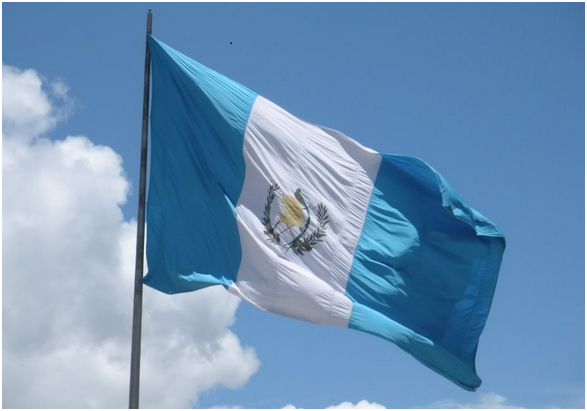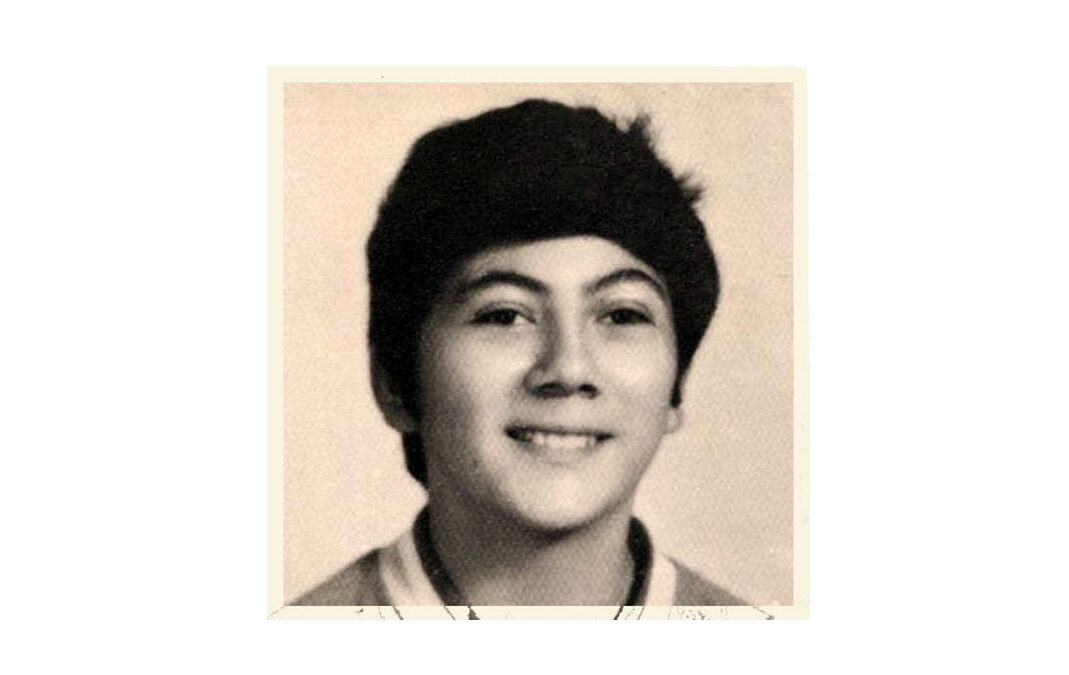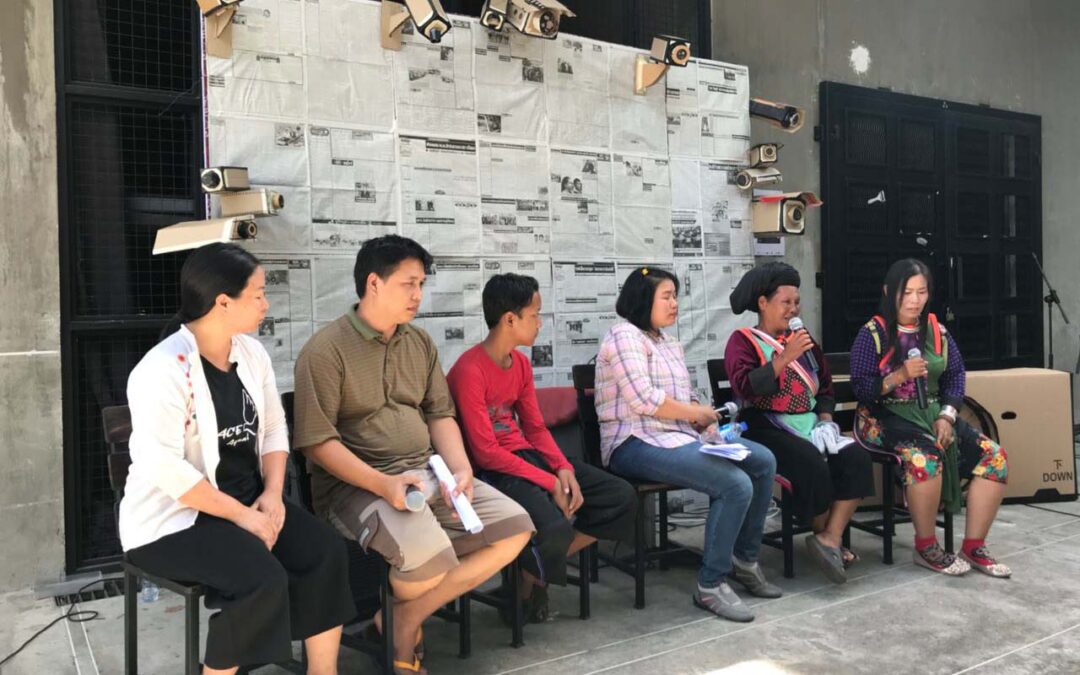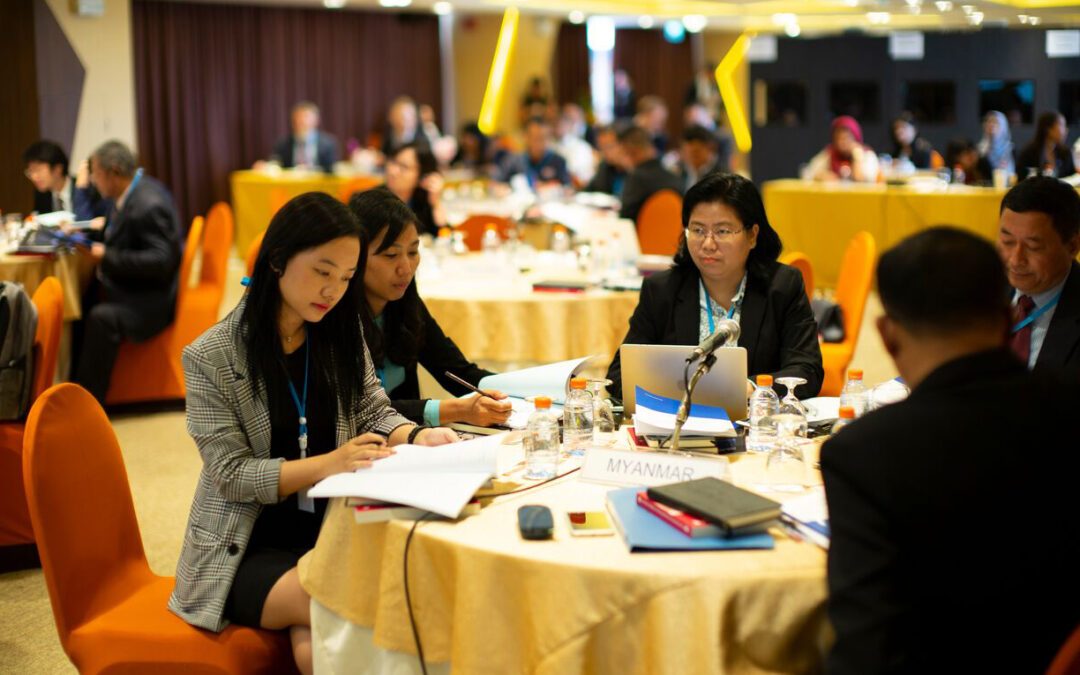
Jun 18, 2018 | Artículos, Noticias
Jueces de Centroamérica, conjuntamente con la CIJ inician Jornadas sobre Independencia Judicial en Guatemala.
Con el objeto de llevar a cabo diferentes reuniones en el contexto de las Jornadas sobre Independencia Judicial en Guatemala, la Jueza de Paz en la ciudad de El Progreso, Departamento de Yoro y Presidenta de la Asociación de Jueces por la Democracia de Honduras; la Jueza de lo Contencioso Administrativo y Presidenta de la Asociación Costarricense de la Judicatura (ACOJUD); el Magistrado de la Cámara Penal de Santa Ana y Primer Vocal de la Junta Directiva del Foro De Jueces Democráticos de El Salvador y el Coordinador de la Oficina Técnica de la Asociacion de Jueces por la Democracia de Honduras, con el apoyo de la CIJ, realizarán una visita a Guatemala los días 18 y 19 de junio.
En el transcurso de su visita, se reunirán con diferentes funcionarios del Poder Judicial y analizarán la situación que se está presentando en Guatemala de ataques contra la Independencia del Poder Judicial y de jueces y juezas independientes y honestas como Ericka Aifán, Yassmín Barrios, Miguel Ángel Gálvez y Pablo Xitumul, entre otros.
Además, analizarán la situación de la Independencia Judicial en la región centroamericana.
La oportunidad será propicia para llevar a cabo dos conversatorios con jueces del Poder Judicial los días 18 y 19 de junio, para poder analizar in situ las acciones que se están presentando en contra de estos jueces y que contravienen los principios básicos y estándares internacionales.
Al final de su visita, darán a conocer las conclusiones generales a las que han llegado y las propuestas que consideran podrían aliviar en parte esta situación.

Jun 8, 2018 | News
The ICJ strongly condemns the draft bill of the Congressional Commission on Legislation and Constitutional Affairs to propose reforms to the Law of National Reconciliation (Congressional Decree 145-96) and grant amnesty in cases of gross human rights violations.
“The amnesty included in this draft bill is unconstitutional and flagrantly violates Guatemala’s international obligations. It seeks to place more obstacles in the way of victims of serious human rights violations in their search for justice and truth,” said Ramón Cadena, Director of the Central American Office of the ICJ.
“Justice must be delivered in these important cases because it is the basis for political stability, the rule of law and democracy. Guatemalan authorities should demonstrate that they have an unquestionable commitment to the struggle against impunity. Unfortunately, this draft bill demonstrates the exact opposite,” he added.
This decision flagrantly contravenes Guatemala’s international obligations to prosecute and punish those responsible for gross violations of human rights and guarantee the rights to justice, truth and reparation for victims of these crimes.
International bodies, including the Inter-American Court of Human Rights in numerous judgments, have condemned Guatemala for gross human rights violations; and on repeated occasions have stated that it is prohibited to grant amnesties in cases of gross violations of human rights and international crimes, such as crimes against humanity, genocide and war crimes.
This draft bill could open the doors to allow impunity to continue, at a time when the judicial system is fighting against impunity in historic cases of gross human rights violations and international crimes and in so doing provide guarantees for the victims’ rights to justice.
The ICJ considers that the administration of justice in cases of gross violations of human rights and international crimes by independent judges in cases of “transitional justice” should be supported, not only by the Legislature but also by the Executive Branch, as well as, self-evidently, by the Judicial Branch itself.
The Supreme Court of Justice has the obligation to support independent judges that through their rulings are proving to be impartial, objective and independent and should take the necessary measures to protect judges from any interference or attack that affects the smooth exercise of their duties.
The ICJ recalls that it is a State’s inalienable obligation under international law to investigate gross violations of human rights and international crimes and to prosecute and punish those responsible.

Jun 6, 2018 | Artículos, Noticias
Después de más de 30 años de búsqueda de justicia por parte de la familia Molina Theissen, el Tribunal de Mayor Riesgo C emitió sentencia condenatoria , cometida en octubre de 1981, durante el conflicto armado interno.
Por la desaparición forzada del niño Marco Antonio Molina Theissen (de 14 años), así como por la detención ilegal, tortura y violación sexual de su hermana Emma Guadalupe Molina Theissen, fueron condenados el 23 de mayo de 2018, los militares de alto rango (en retiro) General de Brigada Benedicto Lucas García, Coronel Hugo Ramiro Zaldaña Rojas, Coronel Manuel Antonio Callejas y Callejas y Coronel Francisco Luis Gordillo Martínez.
En esa misma sentencia, el Tribunal absolvió al coronel Edilberto Letona Linares.
La CIJ observó todo el desarrollo del juicio público.
Como resultado de esta labor de observación, la CIJ considera que, una vez más, se pudo comprobar, que para lograr romper con la impunidad que existe en estos casos de la llamada “justicia transicional”, se requiere indispensablemente que el Sistema de Justicia esté integrado por jueces independientes, imparciales, competentes, idóneos y de incuestionable integridad moral.
Asimismo, de su observación del juicio y estudio de la Sentencia, la CIJ puede concluir que la defensa de los militares procesados llevó a cabo un litigio de mala fe, que buscó apartar del juicio al Juez Pablo Xitumul, Presidente del Tribunal, por medio de recusaciones abusivas y sin ninguna base legal.
Este tipo de prácticas atentan contra una recta administración de justicia y constituyen una violación de la obligación que tienen los abogados de mantener el honor y la dignidad de su profesión y de actuar de conformidad con las normas éticas reconocidas que rigen su profesión, como lo prescriben los Principios Básicos sobre la Función de los Abogados, de las Naciones Unidas.
La CIJ expresa su rechazo por este tipo de estrategias de defensa, que ya han sido implementadas en otros casos de “justicia transicional” en el pasado y que, además, se están haciendo evidentes en casos recientes vinculados a la lucha contra la corrupción.
Además, durante el juicio, la CIJ pudo constatar las siguientes situaciones:
- Presiones y campañas de difamación de diferente naturaleza, que atacaron y cuestionaron la independencia de las y los juzgadores, su idoneidad e imparcialidad;
- Ataques, estigmatizaciones, difamación y cuestionamientos infundados contra la familia Molina Theissen, por sectores cercanos al Ejército de Guatemala; y
- Ataques y estigmatizaciones contra de las organizaciones de derechos humanos y de los abogados y abogadas de la Familia Molina Theissen, así como en contra del Ministerio Público.
La CIJ se permite recordar que:
- La familia Molina Theissen buscó justicia infructuosamente durante más de 30 años, acudiendo a las autoridades judiciales guatemaltecas;
- Ante la denegación de justicia, la familia Molina Theissen tuvo que recurrir al Sistema Interamericano de Derechos Humanos; y,
- La Corte Interamericana de Derechos Humanos, en Sentencia de 4 de Mayo de 2004, condenó al Estado de Guatemala por violaciones a los derechos humanos y le ordenó investigar, procesar y castigar a los responsables de dichos crímenes.
Ramón Cadena, Director de la CIJ para Centroamérica expresó: “Apoyamos al Presidente del Tribunal Juez Pablo Xitumul, a los otros dos jueces que integran el Tribunal de Mayor Riesgo C y a todos los jueces independientes, imparciales, idóneos e íntegros de Guatemala, que con su trabajo tratan de devolverle la credibilidad al Organismo Judicial.”
“Nos complace esta sentencia, ya que sienta un precedente para que una práctica sistemática tan grave, como la desaparición forzada de personas, no vuelva a repetirse en Guatemala. Existen en Guatemala más de 40,000 personas detenidas desaparecidas y el Ejército de Guatemala debería demostrar voluntad política, proporcionando información veraz, para que los familiares encuentren a sus seres queridos, desaparecidos desde hace más de 30 años, durante el conflicto armado interno,” concluyó Ramón Cadena.

Jun 6, 2018 | News
On 5 June 2018, the ICJ co-organized an academic seminar addressing the right to life under international law and the State’s duty to effectively investigate alleged violations.
The event happened on the eve of the post mortem decision to be delivered by Chiang Mai Provincial Court in the case of Chaiyaphum Pasae.
The Lahu youth activist was killed by a military official who was attempting to arrest him as an alleged drug suspect in Chiang Dao district of Thailand’s northern Chiang Mai province in March 2017.
Officials claimed Chaiyaphum had resisted arrest and was subsequently shot in “an act of self-defence”.
On 6 June 2018, Chiang Mai Provincial Court ruled that the bullets shot by the military official had caused the death of Chaiyaphum Pasae.
In its decision, the court made no finding of fault and no finding as to whether Chaiyaphum Pasae had resisted arrest before his death.
The decision by Chiang Mai Provincial Court will now be sent on to the Public Prosecutor and inquiry officers, who will in parallel continue criminal investigations into the case.
The Public Prosecutor is expected thereafter to make a decision regarding any indictment of the military official who shot at Chaiyaphum Pasae.
Participants in the seminar, which was held at Chiang Mai University’s Art Center, included Chaiyaphum Pasae’s family members, interested members of the public, media representatives, students and academics.
Kingsley Abbott, ICJ Senior Legal Adviser, addressed the seminar on the right to life and the international law and standards that apply to investigating potentially unlawful deaths, including the rights of victims and family members, referring to the standards set out in the revised Minnesota Protocol on the Investigation of Potentially Unlawful Death (2016), which was launched in Thailand on 25 May 2017.
The event follows the ICJ’s first regional workshop on the investigation of potentially unlawful deaths and enforced disappearance in Asia, held last week in Bangkok for authorities from Thailand, Cambodia, Myanmar and Nepal.
Other speakers at the Workshop included Ratsada Manuratsada and Sumitchai Hattasarn, lawyers from Human Rights Lawyers Association (HRLA) who represented the family of Chaiyaphum Pasae, and Songkran Pongbunchan, a lecturer from Chiang Mai University’s Faculty of Law.
The Discussion was conducted in collaboration with Legal Research and Development Center Chiang Mai University (LRDC); Center for Protection and Revival of Local Community Rights (CPCR); Center for Ethnic Studies and Development Chiang Mai University (CESD); Human Rights Lawyers Association (HRLA); Protection International (PI); Holding Hands Group; Inter Mountain Peoples’ Education and Culture in Thailand Association (IMPECT); Cross Cultural Foundation (CrCF); Maayimstudio; Save Lahu Group; Lanyim Creative Group; Dinsorsee Creative Group; Northern Activist Community (CAN); and Tonkal Network.
This seminar is part of an ongoing engagement between the ICJ and Chiang Mai University’s Faculty of Law.
Contact
Kingsley Abbott, Senior Legal Adviser, ICJ Asia Pacific Regional Office, t: +66 94 470 1345, e: kingsley.abbott(a)icj.org

Jun 1, 2018 | Events, News
Between 30 May and 1 June 2018, the ICJ co-hosted a workshop for authorities from Thailand, Cambodia, Myanmar and Nepal on the investigation of potentially unlawful deaths and enforced disappearance in accordance with international human rights law and standards.
The workshop was co-hosted with Thailand’s Ministry of Justice and the United Nations Office of the High Commissioner for Human Rights (OHCHR) and took place as part of the ICJ’s Global Redress and Accountability Initiative, which has as one of its core objectives, “increasing the knowledge and capacity of lawyers, prosecutors and investigators to deal with challenges of impunity and access to redress.”
The participants included more than 30 criminal investigators, forensic doctors, forensic scientists, prosecutors, police trainers, senior judges and representatives of the Cambodian Ministry of Justice, the Myanmar Attorney General’s Office, the Thai Ministry of Justice and the Nepal Office of the Attorney General.
The event commenced with opening remarks by the Ambassador of Finland, Ms. Satu Suikkari-Kleven; the Ambassador of Germany, Mr. Peter Prügel; Adviser on the Promotion of the Rights and Freedom from Thailand’s Ministry of Justice, Mr. Pitaya Jinawat; and the Asia Director of the ICJ, Frederick Rawski.
Alex Conte, Senior Law and Policy Advisor, ICJ Global Redress and Accountability Initiative, gave an overview of the international human rights legal framework that applies to the investigation of unlawful deaths and enforced disappearance.
Kingsley Abbott, Senior Legal Adviser at the ICJ, then provided an overview of the revised Minnesota Protocol on the Investigation of Potentially Unlawful Death (2016), which was launched in Thailand on 25 May 2017 and which formed the core of the materials used at the workshop.
Other speakers included Ms. Jennifer Prestholdt, Deputy Director, the Advocates for Human Rights, who presented on the Rights of Victims and Families and witness interviews; Mr. Glenn Williams, Detective Inspector, Field Crime Manager, New Zealand Police National Headquarters, who presented on the investigation process including crime scene management;
Ms. Shivani Verma and Ms. Pratubjit Neelapaijit, of the Office of the High Commissioner for Human Rights who presented on Witness Protection; and Dr. Pornthip Rojanasunan, Adviser, Central Institute of Forensic Science (CIFS)/Member of the Advisory Panel who presented on forensic pathology.
This workshop followed two workshops the ICJ co-hosted between 5 to 8 December 2017 in Thailand on the investigation of potentially unlawful deaths and enforced disappearance for lawyers from Thailand and India, academics and the Thai authorities.
Contact
Alex Conte, ICJ Global Redress and Accountability Initiative, t: +41 79 957 2733; e: alex.conte(a)icj.org
Kingsley Abbott, Senior International Legal Adviser, ICJ Asia Pacific Regional Office, t: +66 94 470 1345, e: kingsley.abbott(a)icj.org









